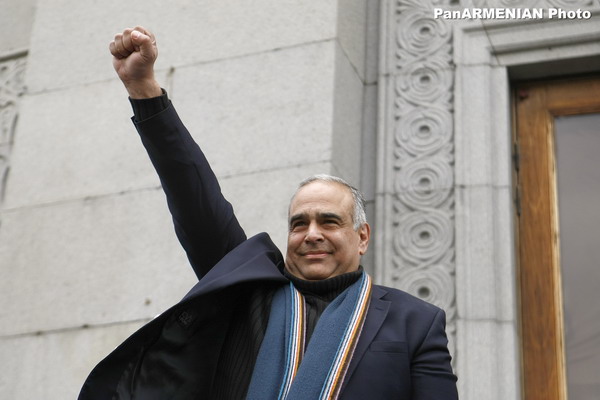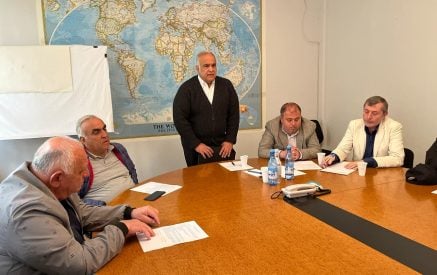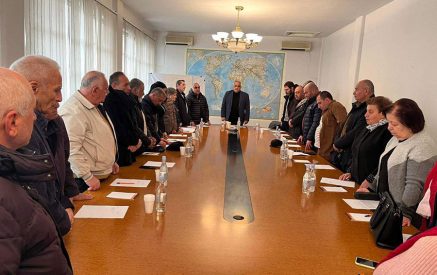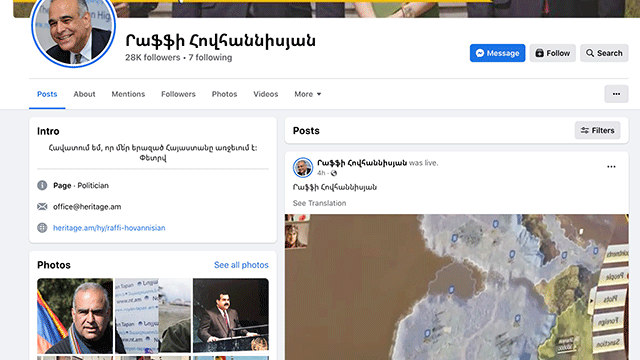Should one pay attention to the reports of the international monitoring missions on our elections, after all? Probably, yes. Not because they are “politburos” and tell the final, undeniable truth, but because they express the West’s or Russia’s attitude toward Armenia’s regional role. One should consider the OSCE/ODIHR interim report made public on Saturday from that very perspective. The main “negative points” of that document are three: 1. insufficient coverage of rallies by the three main TV channels; 2. the fact that the Attorney General’s Office and the police have considered 300 complaints related to the election and initiated criminal proceedings based on 10 of them; 3. an analysis of official results “shows a correlation between very high turnout and the number of votes for the incumbent. This raises concerns regarding the confidence over the integrity of the electoral process.” By the way, Armen Martirosyan, the deputy leader of the Heritage Party, gave the following explanation of the last point: “They state that at the polling places, where the turnout was very high, the incumbent president ‘won,’ so the fact of fraud and ballot box stuffing is obvious; they have already acknowledged that in their report.” It is a rather arbitrary interpretation; unfortunately, the observers don’t acknowledge the fact of obvious fraud and ballot box stuffing. However, even if they acknowledged, one sentence would be important after all their positive and negative assessments, “We urge the OSCE participating countries not to accept the results of the election” or something like that. International observers drew such conclusions from the elections that took place in Yugoslavia, Georgia, Belarus, and a set of other countries. Why? We should look for the reason not in fairness or unfairness of the election, but in the foreign policy theses put forward by Raffi Hovhannisyan. 1. Armenia must recognize the independence of the Nagorno-Karabakh Republic. Let us not discuss whether this is right or wrong, although one could have asked the opinion of the NKR leadership too. However, having such a plan is a direct challenge to the OSCE Minsk Group
co-chair countries. 2. One must completely renounce the Armenia-Turkey protocols. Putting aside again whether this proposal is realistic or not, let us realize what the countries whose foreign ministers were standing behind Nalbandyan and Davutoğlu in Zurich think of it. 3. Mr. Hovhannisyan also hints at Nakhijevan, Western Armenia, and Javakhk with vague formulations, which also, to put it mildly, contradicts today’s geopolitical realities. Besides, at least, in this third case, I will allow myself to note that the statements of a candidate for president should be more restrained, less emotional. Citizens of the Republic of Armenia are to decide who will be the President of the Republic of Armenia. And if the electoral flaws are too many, and citizens protest against them too strongly, the “geopolitical centers” – as they are commonly called – will be compelled to give up on their preliminary scenarios and come to terms with not so “convenient” candidates. However, under normal circumstances, they prefer to deal with a government that is more comprehensible for them. Therefore, one shouldn’t curse Putin, Hollande, Obama and the rest. They just do what is in the interests of their countries.
Aram ABRAHAMYAN



























































